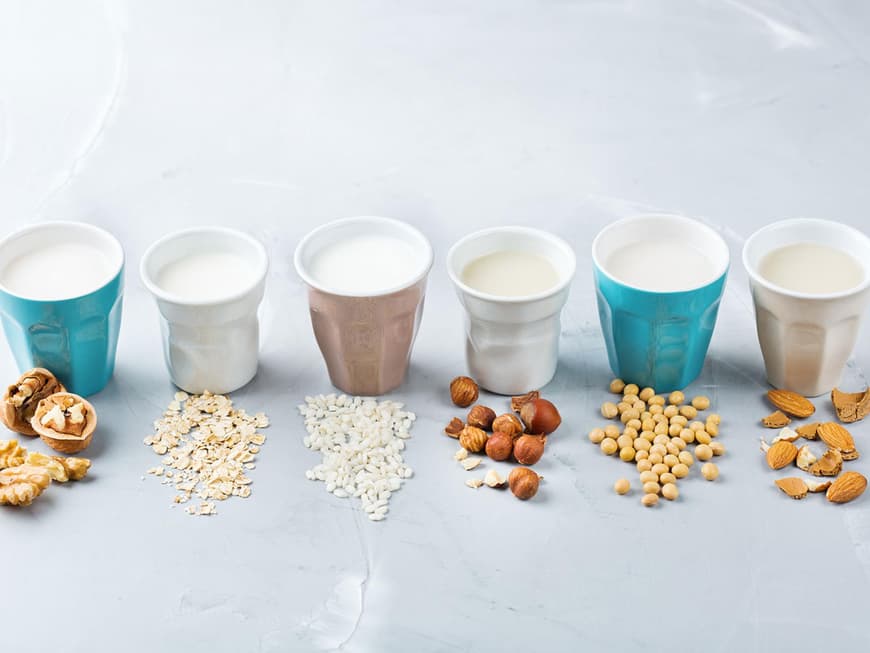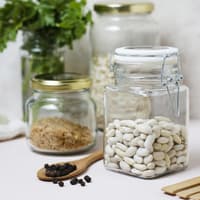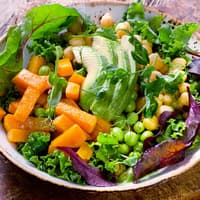
Soy milk
Look out for organic quality here, there are also genetically modified soybeans.
Production: The beans are first soaked for a while. The big advantage: soy milk is high in protein and low in fat.
Caution: Soy milk has no calcium and no vitamin B12, although this is sometimes artificially added by the manufacturer.
Calories: 54 kcal per 100 ml
Rice milk
Sugar and flavorings are often added after filtering.
Production: Cooked rice is pureed, mixed with water and sieved very finely. It is sweetened to taste.
Use: Rice milk is low in protein and therefore not suitable for frothing coffee. But tastes great in muesli.
Calories: 47 kcal per 100 ml
Walnut milk
It has a very nutty aroma and is particularly refreshing in summer.
How to make it: Easy to make yourself with water, nuts, vanilla sugar and honey. It contains a lot of unsaturated omega-3 fatty acids, which have a positive effect on blood lipid levels.
Taste: Very intense. It is therefore a good idea to sweeten it with a little honey.
Calories: 68 kcal per 100 ml
Almond milk
Ideal for allergy sufferers: Unlike cereal milk, it is gluten-free.
Production: The almonds are first roasted and then ground. The flour is mixed with water and sweetener. Many nutrients are lost during filtering.
Use: Almond milk is ideal for baking and, of course, for drinking. However, it quickly becomes flaky in coffee.
Calories: 24 kcal per 100 ml
Hazelnut milk
Its fat content is similar to that of cow's milk, but without cholesterol.
Production: You can even make it yourself: Soak hazelnuts in water overnight, puree and pour through a cloth. Dry the remaining mass and use as flour.
Healthy: It contains B vitamins, vitamin E and omega-3 fatty acids. Tastes nutty and is therefore somewhat reminiscent of Nutella.
Calories: 51 kcal per 100 ml
Oat milk
It is not suitable for hot drinks, but is great for baking.
Production: Oat grains are not used as such, but oat flakes, which are soaked or boiled down. The mixture is then sieved.
Content: Many nutrients and proteins are missing. However, oat milk lowers cholesterol levels. Many children like it very much.
Calories: 45 kcal per 100 ml
You might also be interested in this:
It's all in the milk: Is it healthy or not?
Almond milk: Healthy milk alternative - not just for vegans
Nutrient deficiency: How to recognize what you're missing
Wheat intolerance: 5 alternatives for allergy sufferers
Vegan baking & cooking: These plant-based alternatives are available
Histamine and fructose intolerance: symptoms, complaints and treatment
New study: Is a gluten-free diet healthy?
Food supplements for vegans: what is actually useful?
Beta-glucan: Miracle weapon from oats, yeast and medicinal mushrooms






